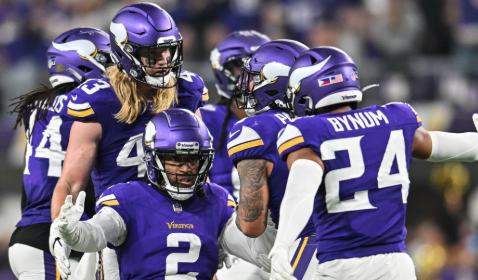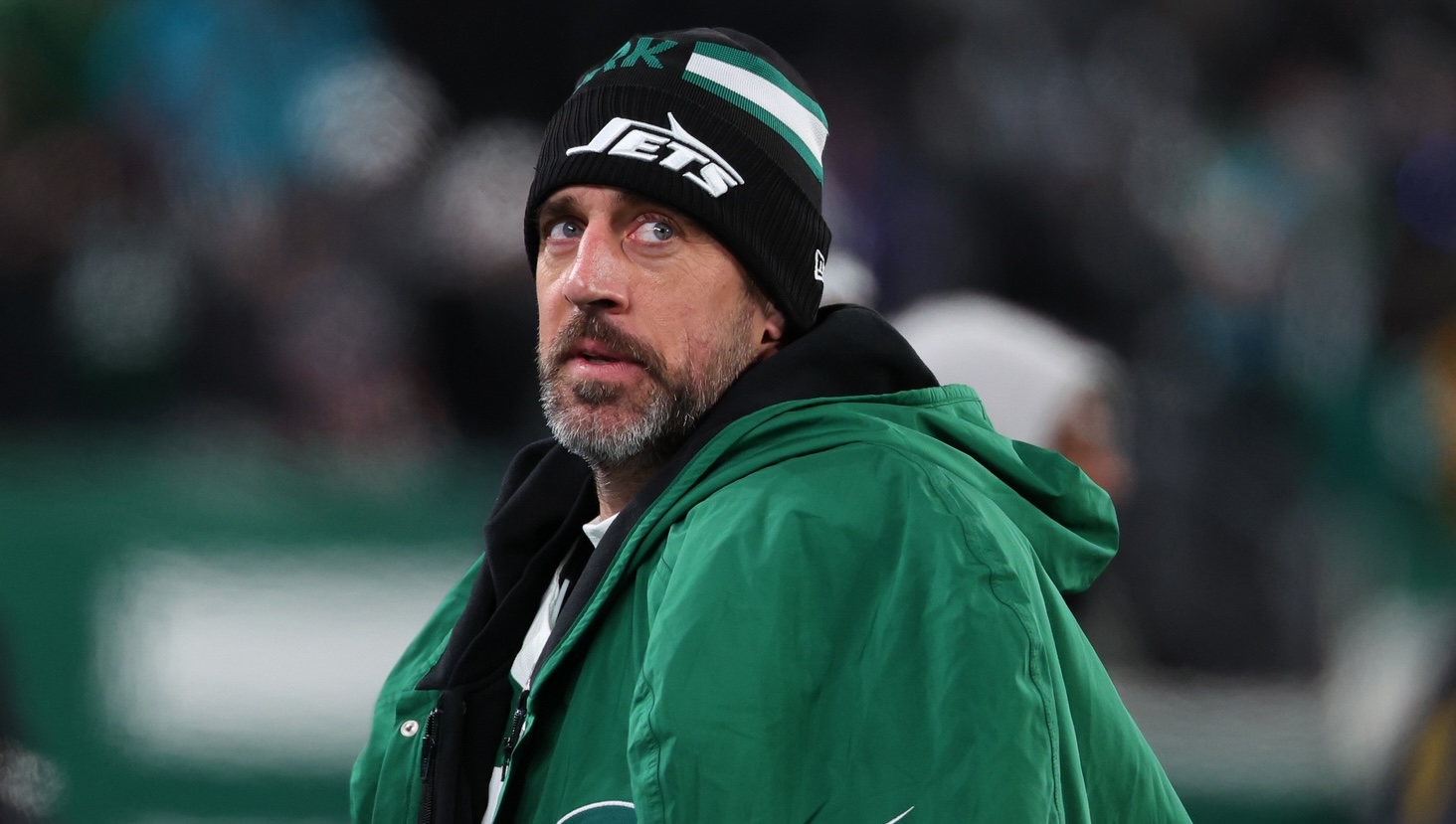
The Minnesota Vikings’ Week 17 win over the Green Bay Packers stands as one of the most unforgettable moments of the season. Sam Darnold dazzled with 377 yards and three touchdowns, entering the locker room to cheers, water showers, and teammates ready to lift him in celebration. Darnold later confessed he wasn’t sure what to do with his hands while being hoisted, as Coach Kevin O’Connell grinned in the corner, clearly delighted by the victory.
That moment will stay with fans for a long time, but it could have unfolded very differently. Instead of celebrating, the Vikings could have been in the locker room with Aaron Rodgers, who would have just led the Packers to a tight win. Rodgers might have joked about whether his post-game water shower was ethically sourced, with teammates like Randall Cobb, Nathaniel Hackett, and Pat McAfee praising him. He’d then head to the press conference to throw his teammates and coaches under the bus.
While the idea of Rodgers joining the Vikings may seem far-fetched, it’s becoming more realistic with Minnesota’s quarterback situation. ESPN’s Adam Schefter recently suggested the Vikings could be a potential landing spot for Rodgers now that the New York Jets have moved on from him. While many Vikings fans have fantasized about this scenario, bringing Rodgers to Minnesota could destroy the team’s established culture.
Rodgers, once a dominant force in the NFC North, was a constant thorn in the Vikings’ side, elevating Packers fans’ hopes with each victory. He turned “three Super Bowls” into “four” for the Packers and made a memorable exit in 2017 after taking a hit from Anthony Barr, which Vikings fans cheered for. Rodgers has become one of the biggest villains in Vikings history, much like Brett Favre before him.
Favre, another Packers legend turned Viking, was the initial antagonist, leading Green Bay to a Super Bowl win. Few could imagine him wearing purple and gold until the Vikings signed him before the 2009 season. That move led to one of the best seasons in Vikings history, as Favre transformed the team, helping to make Sidney Rice and Percy Harvin stars while bringing them to the brink of the Super Bowl. That season, though ultimately falling short due to fumbles and a late interception, remains beloved by fans.
The Vikings find themselves in a similar position today, with Justin Jefferson emerging as a transcendent talent and a defense that ranks among the best in the league. After a playoff exit due to lackluster quarterback play, the team might look to Rodgers as the missing piece, much like they did with Favre. But this time, the situation is different.

Favre, despite his rivalry with the Vikings, had a level of respect that made his brief stint in Minnesota more palatable. He was seen as fun-loving and charismatic, with fans warming to him despite his Packers legacy. Rodgers, on the other hand, has a far less likable reputation, often coming across as petty and self-centered. His ongoing personal conflicts and the public persona of being the “smartest person in the room” create a stark contrast to Favre’s more relatable image.
On the field, Rodgers is no longer the same player who dominated for the Packers. At 41, his mobility is gone after an Achilles injury, and his performance has declined. Last season, he ranked 18th in overall grade, and his average depth of target was only 7.3 yards. At this point, his continued playing feels more about proving a point than chasing another Super Bowl.
The real risk, however, lies off the field. Rodgers’ time with the Jets in 2023 proved to be disastrous. Expected to be the piece that turned around a young, talented team, his season ended with an injury just minutes into the opener. His behavior, from political rants to demands for his own offensive coordinator, created a toxic environment. Teammates like Garrett Wilson and Breece Hall faded into the background, and Rodgers’ presence eventually led to coaching and management changes.
While some may argue that team culture isn’t that important, the Jets’ experience highlights how a toxic atmosphere can derail even the most promising teams. The Vikings must avoid repeating this mistake, as bringing in a divisive figure like Rodgers could undo the positive culture they’ve worked to build.
Rodgers may provide a more reliable option than younger quarterbacks like J.J. McCarthy, but his presence could ultimately turn the Vikings into another dysfunctional franchise, like the Browns or the Jets. The risk isn’t worth it, and the Vikings should focus on making the right decision for their future.
Leave a Reply